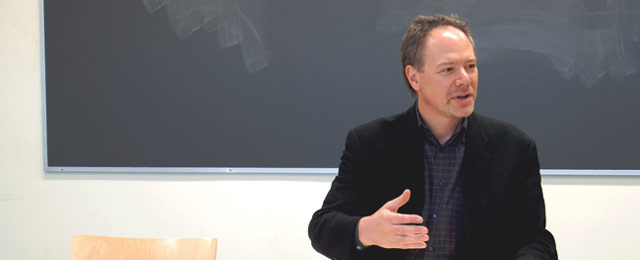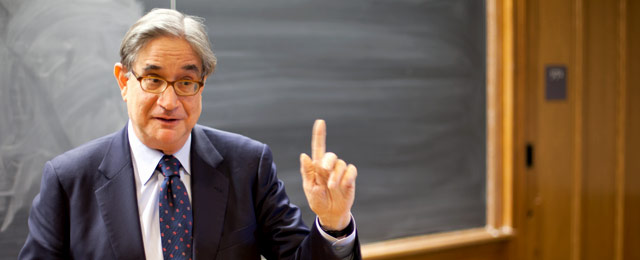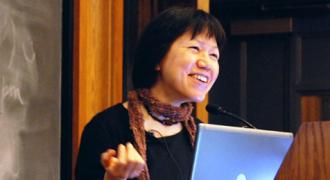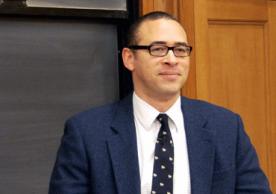Online courses directory (457)
This course traces the destruction of the Jews and Jewish life in Europe by Nazi Germany, drawing on major works of history, literature, and film. The lectures outline the work of the Nazis as well as Jewish responses.
Computer science is a diverse topic encompassing computer technology, hardware, software, security, communications, programming, algorithms, functions, and storage. By studying it you will learn how computer science impacts on our daily lives. In this free online computer science course you will start by reviewing bits and binary code, including how they are transmitted and stored, and go all the way to computer algorithms which help solve complex problems in an efficient and cost-effective manner. You will also review various computer systems and architecture such as Linux, Windows, and Mac operating systems. This free online computer science course will be of great interest to IT professionals who would like to review the diverse range of topics found in computer science. It will also be useful to learners interested in a career in IT and computing who would like an introduction to the topic.<br />
This course is intended as an introduction to political philosophy as seen through an examination of some of the major texts and thinkers of the Western political tradition. Three broad themes that are central to understanding political life are focused upon: the polis experience (Plato, Aristotle), the sovereign state (Machiavelli, Hobbes), constitutional government (Locke), and democracy (Rousseau, Tocqueville). The way in which different political philosophies have given expression to various forms of political institutions and our ways of life are examined throughout the course.
Major developments in the political, social, and religious history of Western Europe from the accession of Diocletian to the feudal transformation. Topics include the conversion of Europe to Christianity, the fall of the Roman Empire, the rise of Islam and the Arabs, the "Dark Ages," Charlemagne and the Carolingian renaissance, and the Viking and Hungarian invasions.
Globalization is a fascinating spectacle that can be understood as global systems of competition and connectivity. These man-made systems provide transport, communication, governance, and entertainment on a global scale. International crime networks are outgrowths of the same systems. Topics include national identity, language diversity, the global labor market, popular culture, sports and climate change.
However, an increase in integration has not brought increased equality. Globalization creates winners and losers among countries and global corporations, making competition the beating heart of the globalization process.
The globalization process exemplifies connectivity. Globalization is unimaginable without the unprecedented electronic networks that project dominant cultural products into every society on earth.
Learn how to identify and analyze global systems and better understand how the world works.
Before your course starts, try the new edX Demo where you can explore the fun, interactive learning environment and virtual labs. Learn more.
Emotional intelligence, hope, mindfulness, and compassion help a person reverse the damage of chronic stress and build great leadership relationships. The Positive and Negative Emotional Attractors inspire sustained, desired change and learning at many levels.
This course examines the social, political, and economic development of the United States since the end of the Civil War. It traces the rise of an industrial and urban social order, the emergence of the U.S. as a world power, social and political reform movements, and recent transformations. Readings and written assignments focus not only on the major political events and economic developments of the period, but also the experiences of diverse groups, including women, African-Americans, immigrants, workers, and others.
This graduate seminar has two main goals: to explore the main theoretical and methodological approaches to the study of contemporary Chinese politics; and to relate those approches to broader trends in the field of comparative politics. What has the study of China contributed to the field of comparative politics, and vice versa? What are the most effective ways to integrate area studies, broader comparative approaches, and theory? Seminar presumes a basic understanding of the history and politics of contemporary China.
This course examines major works by Hemingway, Fitzgerald, and Faulkner, exploring their interconnections on three analytic scales: the macro history of the United States and the world; the formal and stylistic innovations of modernism; and the small details of sensory input and psychic life.
Warning: Some of the lectures in this course contain graphic content and/or adult language that some users may find disturbing.
This course is an introduction to the short story. Students will write stories and short descriptive sketches. Students will read great short stories and participate in class discussions of students' writing and the assigned stories in their historical and social contexts.
In this course we will read essays, novels, memoirs, and graphic texts, and view documentary and experimental films and videos which explore race from the standpoint of the multiracial. Examining the varied work of multiracial authors and filmmakers such as Danzy Senna, Ruth Ozeki, Kip Fulbeck, James McBride and others, we will focus not on how multiracial people are seen or imagined by the dominant culture, but instead on how they represent themselves. How do these authors approach issues of family, community, nation, language and history? What can their work tell us about the complex interconnections between race, gender, class, sexuality, and citizenship? Is there a relationship between their experiences of multiraciality and a willingness to experiment with form and genre? In addressing these and other questions, we will endeavor to think and write more critically and creatively about race as a social category and a lived experience.
Learn about the ethical issues that arise when conducting human subjects research, as well as the history that grounds policies and debates in this area of biomedicine.
The purpose of this course is to examine the African American experience in the United States from 1863 to the present. Prominent themes include the end of the Civil War and the beginning of Reconstruction; African Americans’ urbanization experiences; the development of the modern civil rights movement and its aftermath; and the thought and leadership of Booker T. Washington, Ida B. Wells-Barnett, W.E.B. Du Bois, Marcus Garvey, Martin Luther King Jr., and Malcolm X.
Warning: Some of the lectures in this course contain graphic content and/or adult language that some users may find disturbing.
The CS 61 series is an introduction to computer science, with particular emphasis on software and on machines from a pro
This class is divided into a series of sections or "modules", each of which concentrates on a particular large technology-related topic in a cultural context. The class will start with a four-week module on Samurai Swords and Blacksmithing, followed by smaller units on Chinese Cooking, the Invention of Clocks, and Andean Weaving, and end with a four-week module on Automobiles and Engines. In addition, there will be a series of hands-on projects that tie theory and practice together. The class discussions range across anthropology, history, and individual development, emphasizing recurring themes, such as the interaction between technology and culture and the relation between "skill" knowledge and "craft" knowledge.
Culture Tech evolved from a more extensive, two-semester course which formed the centerpiece of the Integrated Studies Program at MIT. For 13 years, ISP was an alternative first-year program combining humanities, physics, learning-by-doing, and weekly luncheons. Culture Tech represents the core principles of ISP distilled into a 6-unit seminar. Although many collections of topics have been used over the years, the modules presented here are a representative sequence.
Basic course for engineering students on Introduction to Information Technology and Introduction to Computer Sciences
What do your dreams mean? Can apes learn sign language? Why cant we tickle ourselves? Paul Bloom answers these and more.
This course studies the relations of affect to cognition and behavior, feeling to thinking and acting, and values to beliefs and practices. These connections will be considered at the psychological level of organization and in terms of their neurobiological and sociocultural counterparts.
Professor Lynn Hunt lectures in this course which covers a broad, historical study of major elements in Western heritage
"What people do with food is an act that reveals how they construe the world."
- Marcella Hazan, The Classic Italian Cookbook
If you are what you eat, what are you? Food is at once the stuff of life and a potent symbol; it binds us to the earth, to our families, and to our cultures. In this class, we explore many of the fascinating issues that surround food as both material fact and personal and cultural symbol. We read essays by Toni Morrison, Michael Pollan, Wendell Berry, and others on such topics as family meals, eating as an "agricultural act" (Berry), slow food, and food's ability to awaken us to "our own powers of enjoyment" (M. F. K. Fisher). We will also read Pollan's most recent book, In Defense of Food, and discuss the issues it raises as well as its rhetorical strategies. Assigned essays will grow out of memories and the texts we read, and may include personal narrative as well as essays that depend on research. Revision of essays and workshop review of writing in progress are an important part of the class. Each student will make one oral presentation in this class.
Trusted paper writing service WriteMyPaper.Today will write the papers of any difficulty.






















